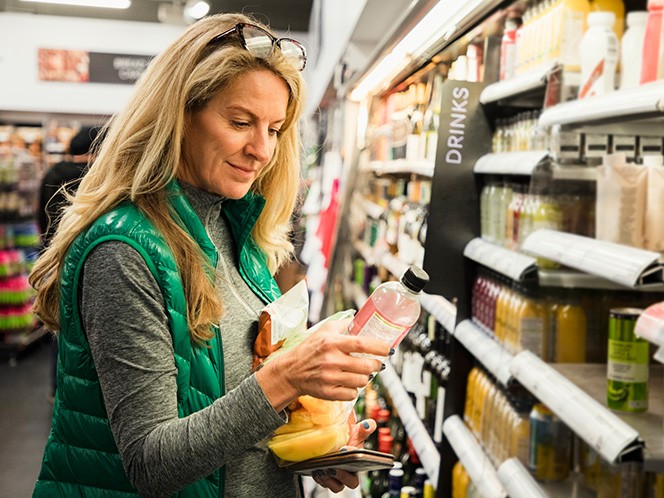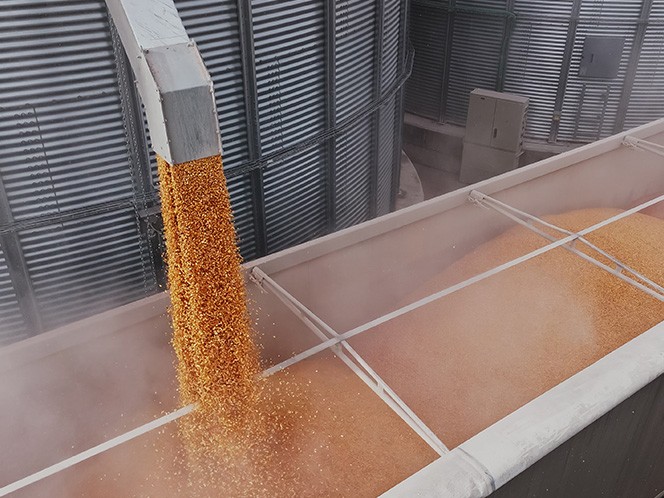Tech, trends, and traceability: Inside the transformation of consumer products with Ted Combs
Posted: May 6, 2025
As consumer preferences shift and economic pressures mount, the consumer products industry is undergoing an evolution—grappling with everything from traceability and sustainability to AI integration and labor shortages. To get a clearer picture of this transformation, I spoke with Ted Combs, AVEVA’s Industry Principal for Consumer Products, about the forces reshaping the industry. Combs offers a look at the pressures companies face—and how data, new technology, and adaptability are helping them move forward.
Let's begin with your background. How did you end up in the consumer products industry?
Combs: When I was just out of college, I took an entry-level marketing position for a very large consumer packaged goods firm. I eventually worked for a few CPG firms in sales, marketing and distribution related roles. My last CPG stint was at Keebler, which was later acquired by Kellogg's.
When I was at Keebler, we went through a digital transformation on the IT side with an ERP implementation, and they tapped me to be on the project team. I had no idea what I was getting into. I remember it being very challenging (even the vocabulary they used was unfamiliar) but there was something about reimagining business processes, looking for the value and discovering how technology could help that just fascinated me. I was drawn to that whole space, and after having gone through that long, difficult journey, I decided to see if I could shift my career into tech. So that's what I did.
You wrote recently that consumer products is among the first sectors to feel the impact of economic shifts. Why is that?
Combs: Number one, there's that direct connection with the consumer. If there’s a recession or inflation, consumers typically trade down to less expensive choices. It's the nature of the industry and creates many challenges.
Margins have always been a challenge for consumer products companies. Since I joined the industry many years ago, retailers have emerged with more buying power. Walmart, Amazon and other large retailers’ dominance has made it extremely difficult for CP companies to pass along price increases when they absorb inflation because the large retailers oftentimes won’t accept it. That’s had a profound effect on the industry.

As a result, they're just constantly looking for ways to eliminate waste, drive down costs, and produce their product more efficiently. That's where AVEVA plays a big role, helping them do just that.
You also mentioned consumer fickleness as a pain point for companies. Why would that be a problem?
Combs: One of the responsibilities of brand marketing is to develop new products and line extensions because they're always looking to align with consumer preferences and get an edge on the competition. But it can be very challenging and disruptive to established manufacturing processes, such as recipe changes, and to keep track of ingredients by batch, etc.
How are you seeing the demand for greater ingredient traceability affecting the industry?
Combs: Consumers are more aware and concerned about the provenance of their products, and while all businesses are trying to maintain product quality, every business is a little different and has its own unique challenges. For example, food and beverage companies have serious safety concerns, and the ramifications could be even fatal. A brand can literally be wiped out overnight for a contamination incident or a poorly handled food recall.
One of the things emerging on a macro-level is heightened concerns over the safety of the food supply chain. In the US, there are many chronic illnesses, which many believe are linked to food additives. This has shined a light on ingredients and ingredient traceability. Many more ingredients are allowed to go into food products in the US versus Europe.
The consumer now wants to understand the provenance of their products. If it's a protein product, it could be animal “husbandry”; how the animal was treated while being raised, e.g. free-range or cage-raised? I think every company would like to be able to satisfy those requirements, but as you can imagine, that requires new solutions.
Can you elaborate on the role new technology has to play in traceability?
Combs: As a manufacturer, they are responsible for reporting what ingredients went into a batch “one step back” (i.e., who supplied them), and “one step forward” (i.e., who received the finished good).

Each member of the supply chain has that responsibility, so it’s truly a connected supply chain or network matter. The data's out there. The question becomes; how does it come together? I like to describe our solutions as a “system of record” for this important responsibility. If one needs to know exactly what went into a batch, AVEVATM PI SystemTM and AVEVATM Manufacturing Execution System can tell you—with great precision and confidence.
This is valuable and important information when producing traceability reports, whether for consumers or regulators.
How are you seeing companies meet their sustainability goals?
Combs: I see all consumer products companies focused on sustainability. They want to demonstrate to their customers that they are concerned “citizens” and that they are doing their best. Thirty percent of all food, believe it or not, gets thrown out before it is ever consumed. We're finding many new areas of opportunity to help organizations reduce scrap and reduce waste while lowering their energy costs. The consumer products industry has a huge carbon footprint. Many are cooked; many are refrigerated or frozen, and all need to be transported.
Could you talk about how the influx of AI is affecting the industry?
Combs: Like most industries, consumer products has many use cases for AI, and the results are already starting to pile up. I am amazed at how quickly companies are deriving benefits with short-term projects and solid ROI. AVEVA has had AI/ML learning capabilities for over a decade, so this isn't new to us. We're also the custodians of massive amounts of trusted and secure data which is critical for successful AI. Our strategy is to provide some AI capabilities ourselves, but more importantly, to be open partners for additional AI tools and solutions. Our customers really value and appreciate that. The more trustworthy data there is that AI can leverage and use, the better off companies will be.
AI capabilities are very impressive, so I really have yet to see where it can't play a role in the enterprise. I think we need to be open-minded at this stage. Originally, I thought of AI enterprise-wide, but I'm seeing lots of use cases pop up that are more contained and precise, and the payback time is usually quick like in a matter of weeks or months.
Is there anything else that’s top of mind for companies that you haven't covered yet?
Combs: One of the things I do in my job is have conversations with CP executives about their biggest challenges and concerns. This past year, labor shortage and retiring talent became a top concern among everyone, and they are having difficulty recruiting top talent into what is perceived as a low-tech environment. Fortunately, AVEVA helps companies offer new recruits a more modern environment with advanced digital tools that are state of the art with a great user experience.
What is your outlook for the consumer products industry?
Combs: I've been doing this for a long time and have seen the industry face many challenges. I am very encouraged that today’s technologies and solutions can outpace the challenges that the industry is facing. I think we should be optimistic.